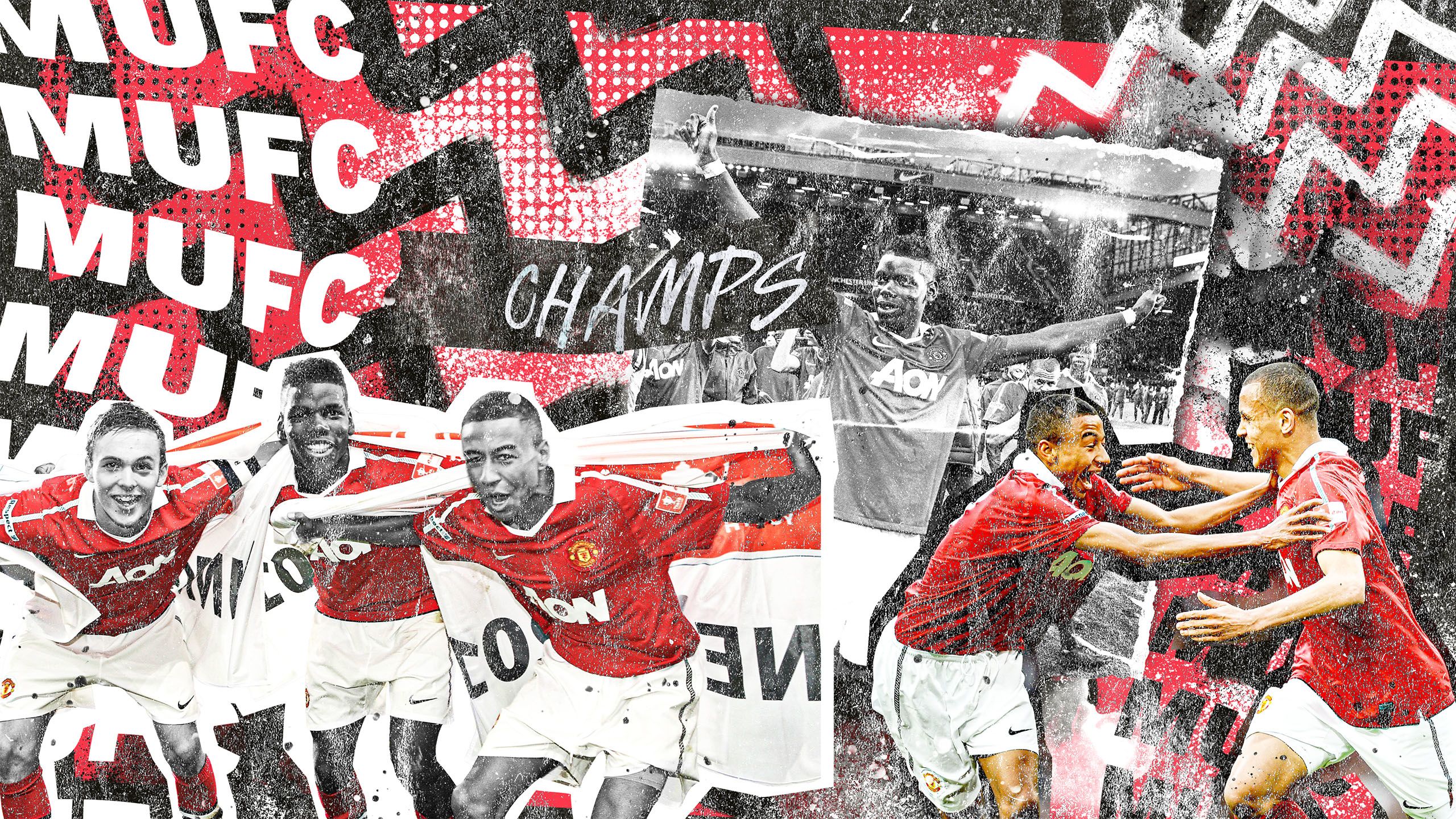
Pogba, Lingard, Morrison and Man Utd's last golden generation
The class of 2011 won the FA Youth Cup for Manchester United for the 10th time, this is the
story of that triumph told by those who were there
By Charlotte Duncker
No club has won the FA Youth Cup on more occasions than Manchester United.
From ‘the Busby Babes’ to the ‘Class of ‘92’, United’s reputation for producing supremely talented young players via their academy is almost unmatched.
However, May 23 will mark 10 years since the Red Devils last lifted a trophy they have won a total of 10 times. Chelsea have become the dominant force in the competition, while Liverpool and Manchester City have also tasted success in recent years.
A decade ago, though, it was United’s players celebrating on the Old Trafford turf after beating Sheffield United in the final. A team that contained Paul Pogba, Ravel Morrison and Jesse Lingard, among others, were the best Under-18s side in the land.
It is a team that has already produced a World Cup winner in Pogba as well as three players with England call-ups to their name, but what made them such a special team?
Goal has spoken to members of the squad and coaching staff to get the inside story of United’s last great youth side…
Sam Johnstone, goalkeeper: Our core age group had been together since we were 11 or 12 years old, and we used to get beat every week because we were so, so small. We had the talent, but apart from me everyone was so small.
We had played with each other for a while, so we all had that understanding of each other and played a lot of games together. Then there was a few added along the way and we did well, so we knew we were good.
Will Keane, striker: We knew we had a really strong squad. I think the regular season we were always towards the top of the league, and we got a few other players in from overseas as well. We had additions like Paul Pogba and other players like that which added to it.
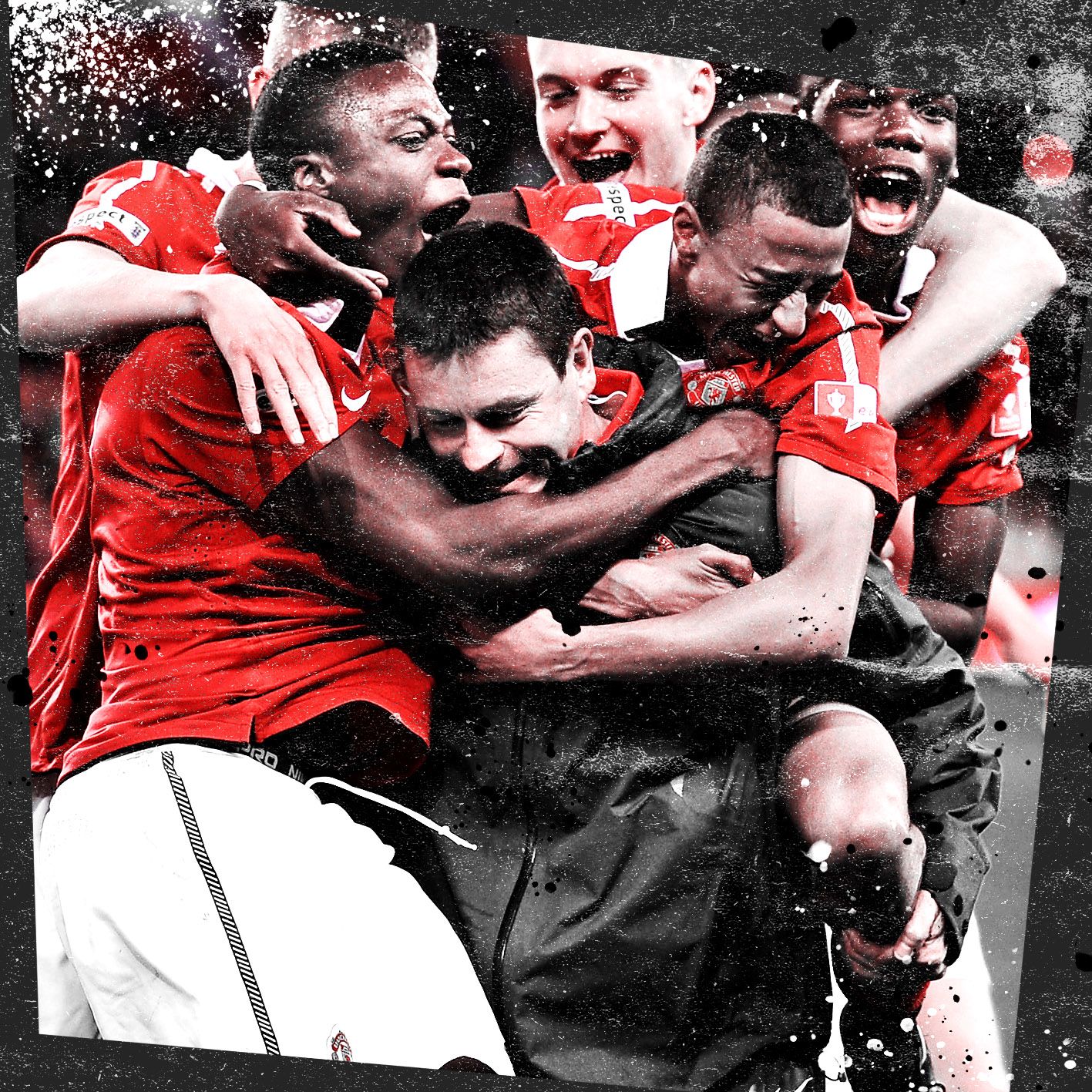
Our coach Paul McGuinness was so good in terms of developing players technically, but then we also did a lot off the pitch as a squad.
Paul McGuinness, head coach: A big factor in team building is making them feel like they belong to something special, and that team was no different. They all knew it was a special privilege to play in that youth team and they were the guardians of the club’s history.
Keane: McGuinness, was massive on it (the Youth Cup). He had a big association with the cup for years, and he always spoke to us about the history of the club and how it’s massively important.
McGuinness: I had all the old photos and memories from my dad (Wilf McGuinness, part of the Busby Babes who won the Youth Cup three times), and I would put those up all the time and we’d show videos of those teams to the players.
It was little things, like I would make them wear the blazers in the Youth Cup and I would teach them about the history of the badge. The badge has the crest of Manchester, so they know about the lion and the castle and the three stripes going through being the rivers going through Manchester.
The biggest pressure we put on them in the Youth Cup was to make it feel like a first-team match, because you play in the stadiums and it’s a big part of their development. Each round they go through it gets bigger and the pressure gets more. It’s a real test for them.
Keane: I remember at the time there was the whole talk because we were in the 1992-93 age bracket, and all those years before it had been the ‘Class of ‘92’, so there were plenty of stories around that and it was just nice to be a part of it. To do it with your mates made it extra special.
Sean McGinty, defender: I knew from minute one of being there that the Youth Cup is the main competition that you’re looking to win at that age.
I grew up watching some of the games on Sky and you knew it was the biggest game available to you. You had to go out there and perform. All eyes were on you and you knew if you performed well, you had a really good chance the following year to break into the reserves and show Fergie what you’ve got.
Johnstone: At that age it’s massive. Sir Alex Ferguson pulled everyone into his office and gave us a chat and a bit of confidence and he told us to go out and do our thing. They tried to really play it down to us, even though we knew it was a big thing.
It was just a crazy few months playing in that competition.
Undoubtedly the most successful graduate from the 2011 team is Pogba. Formerly the most expensive player in the world and back playing a key role at Old Trafford after impressing in his four seasons at Juventus.
A decade ago, though, he was a relatively unknown French teenager who was in his third season at United having joined from Le Havre. That is not to say, though, that he was not a key player for McGuinness’ side.
Keane: I first remember Pogba when we had a training game at the Cliff (United’s former training ground). He must have just been a scholar, because I remember he didn’t speak much English at the time. That was our first glimpse of him, and I remember then thinking he’s such a good player technically, but he also stood out physically.
McGinty: I remember the day he came in having just signed from Le Havre, and you could see he was a big presence. Everyone was talking about him playing well in France and then he made his big move over.
McGuinness: He was a good lad, great in the dressing room and they all really enjoyed each other’s company. He was 6’3”and a bit gangly, and I’d heard he was a good player. From minute one he had that real presence about him, and you could tell he really believed in himself and that he was going to go to the top.
McGinty: I think he started quite slowly, but as the season went on he really took it by the scruff of the neck and he was a real standout performer
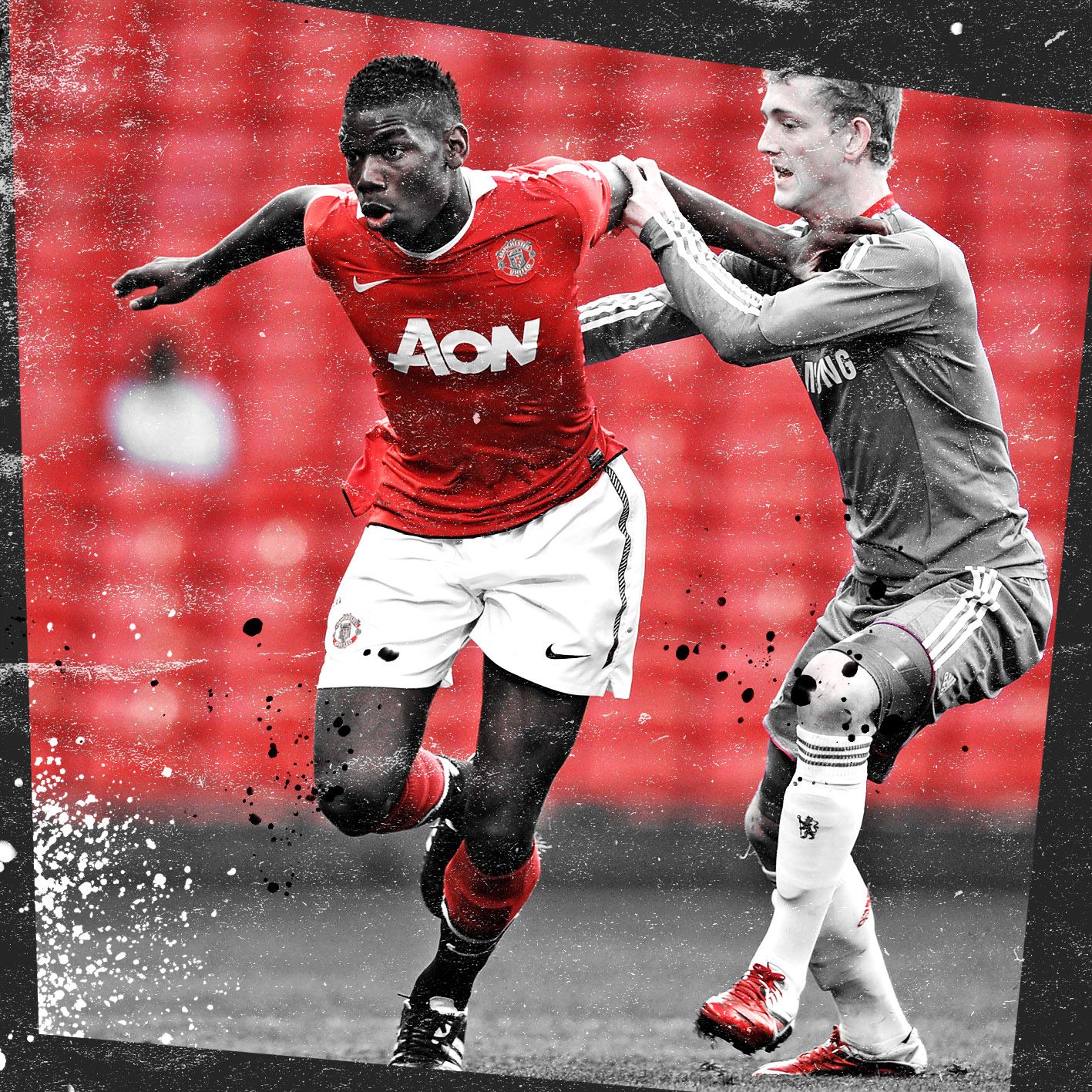
Keane: He was such a big lad and he was so strong in midfield. The way he could hold players off but manipulate the ball and get out of tight situations was brilliant.
McGuinness: He’s good in little tight areas, but at that height you’re thinking, ‘will he have good control?’ But wow, his control was fantastic! His disguise, his dribbling too - he fitted in perfectly.
Johnstone: He was a big character that added to our dressing room and added to the team. He was massive for our age group. After winning the Youth Cup and we went on to win the reserves league the year after, and it wasn’t long until he was training with the first team and travelling with them.
We had a great team overall, but players like Pogba just added that extra little bit to our team that took us further along the way.
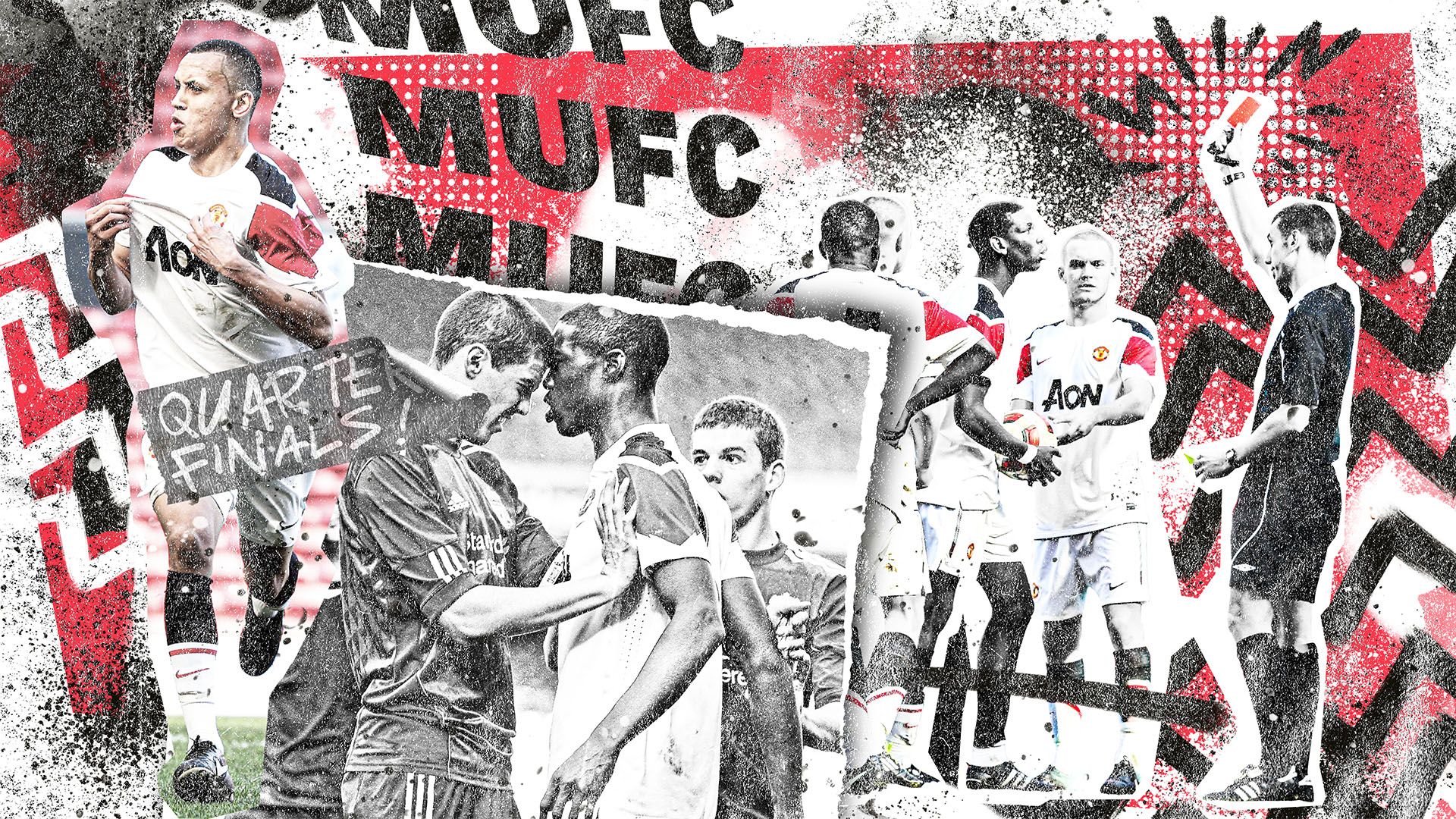
Having beaten Portsmouth, West Ham and Newcastle in the early rounds, United were drawn to face Liverpool in the quarter-finals, with the game slated to take place at Anfield.
Though Raheem Sterling was the star attraction in the home team’s ranks, it was forward Adam Morgan who fired Liverpool into a 2-0 lead with goals either side of half-time.
United fought back, however, with Larnell Cole netting a penalty before a brace from Ravel Morrison secured a memorable 3-2 win that saw two players from each side sent-off, including Pogba and Liverpool captain Conor Coady.
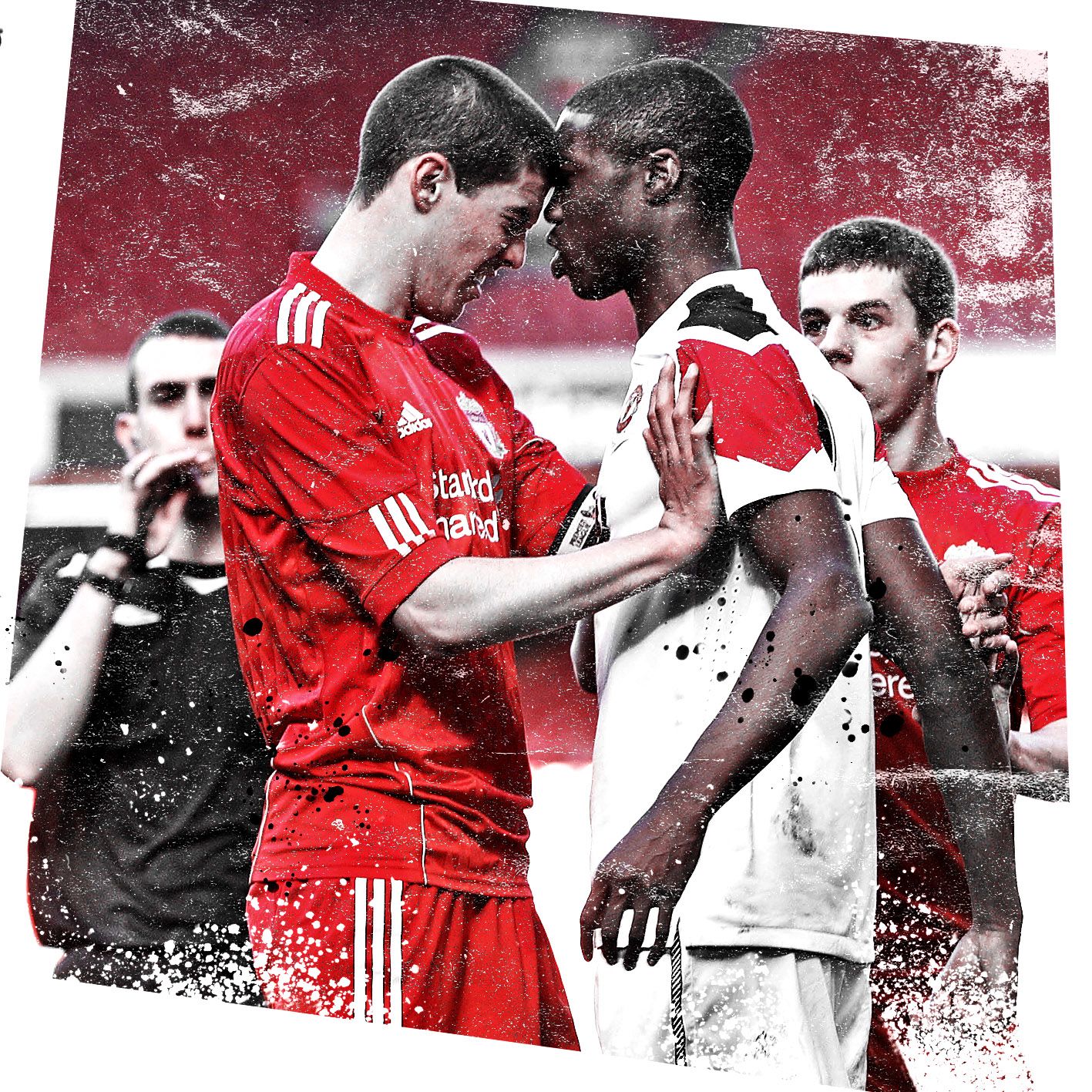
As engrossing as the action was on the pitch, the atmosphere off it was what made headlines, with six United fans ejected after a series of chants that Liverpool legend John Aldridge labelled as “absolutely sickening”.
McGuinness: That was the real standout game of the tournament for me. I took two youth teams to Anfield and won both times, which is a good feeling because you know it’s something the kids will remember all their life.
You want to stand there before and go, ‘you need to get one over on these because you might be playing them in the first team. Then you’ll have the upper hand and you’ll know what it’s like to play in these places and win.’
I used to take players outside of the games to watch the first team. Earlier in that year, I took Ryan Tunnicliffe and Ravel Morrison to Anfield in the crowd, and they could take in the atmosphere and feel it. You’re trying to get them a little taste all the time.
I remember watching a documentary on Destiny’s Child, and the first film they had was when they were like seven or eight and they were just at home with hairbrushes for microphones, performing in front of parents in a home video in a living room. The next one there’s about 100 people in a school concert. The next one’s a town hall and then the next one’s bigger until they get to a bigger and bigger crowd.
In football we tend to go from nothing to 35,000 people, and the players need more step ups. But as you go through that tournament you see them grow.
Johnstone: I think it was a Sunday afternoon. It was sunny, red hot, and the United fans were in the away end. The Kop was full but I buzzed off that. I liked that pressure of having to perform with them watching and wanting to do well, as well as wanting to upset Liverpool fans and perform for the United fans.
It was feisty. We had two players sent off and there were tackles flying in. Luckily we came out on top and won.
McGinty: That was the first proper game I was involved in, and I’d never played at Anfield before. All the United fans were down one end and the Kop was packed and there were flares going off. It had a real derby feel to it.
Pogba got sent off for mis-taking a penalty with a stuttering run-up. So many things went against us, and to go behind before coming back in the way we did was unbelievable. The celebrations after the game were fantastic.
McGuinness: These FA Youth Cup games are like dress rehearsals, especially if you get a big crowd. To win at Anfield is pretty memorable.
The goals were great - Ravel scored a volley. Tunnicliffe was the star man that game, though. He was fantastic. Down to nine men and he’s putting in the work of two people.

Keane: It was a massive win. To come through that it made us think that we had a real chance and we could build momentum from there. Especially as young boys to experience that atmosphere at a ground like Anfield was amazing.
McGinty: That game sticks in my memory probably more than the final itself because it was such a big win for us.
Morrison’s match-winning performance at Anfield only confirmed his status as the outstanding individual in the United team, with the forward regarded as one of the best young talents in England at the time.
His failure to return on his potential is well-documented, with the latest stop on his globe-trotting journey having been at ADO Den Haag in Eredivisie. But 10 years ago, he had the world at his feet.
McGinty: Ravel was by far the best player in our team for his raw natural talent. I just think big moments in big games, he always managed to come up with something.
McGuinness: Ravel has that X-factor, which as a coach you want to see. He plays the sort of football I want to see, it’s entertaining.
Johnstone: His talent was broad natural ability. He wasn’t good to train with because he’d make you look stupid. He was good to have around the place and he’s a good character. Nobody ever questioned his ability.
Keane: He had incredible talent. He was capable, and still is, of doing anything on a football pitch. I think he was just so natural with the ball at his feet, the way he could dribble with either foot. He was so unpredictable as a player that he had that slight arrogance, but confidence in his ability so that if he made a mistake he wasn’t bothered.
A lot of young lads used to make mistakes and your head can go and you can under, but he would just try things over and over again and some of the stuff he could produce was incredible.
McGinty: That game at Anfield he scored two, and during the season he’d come up with big goals when we’d be losing and create chances out of nothing. Sometimes he wouldn’t be starting games and he’d come on and make an impact straightaway.
McGuinness: I remember in the Youth Cup final and he tried to nutmeg someone in the last 10 minutes when we were two up and I’m telling him to play two touch and not just dribble with it. He’s special in different ways.
Once you realise you shouldn’t manage him too much, he was easy to manage. I couldn’t really tell him a lot about football and dribbling and so on because he’s got this special talent
You talk about the arrogance of timing, those who get close to the fire without getting burnt. They tempt the players in, like Messi. These players you can’t tell them what to do because they see things that you can’t see and they have special talent. With someone like Ravel you have to set the structure and then let them play freely from that structure.
There was one game against Leeds as we were getting ready for the Youth Cup final and the confidence was sky high. We started the game off and I don’t think Leeds touched the ball for 10 minutes. We were keeping the ball, passing and probing, combining, dribbling and going back out and then coming back in again, and Ravel was on top form.
At that point it looked like he was taking the mickey because he would hold it then play a one-two and dribble again, and then get it back. To the Leeds players it looked like he was taking the mickey out of them but that was just the way that he played and how we wanted to entice opponents out of position to feed the balls through the gaps they left.
After 10 minutes, the Leeds centre-half got fed up with this and absolutely launched him. I remember the coach shouting, ‘about time too,’ because they had a touch. The first touch they’d had was Ravel’s leg I think! You just know at that point everyone’s confidence is soaring high and you’ve got a real player.
United’s prize for their win over Liverpool was a semi-final clash against Chelsea, which would be played over two legs, with the first game at Stamford Bridge.
Despite goals from Lingard and Pogba, the Red Devils went down to a 3-2 defeat in west London, with Nathaniel Chalobah netting a double for the home side.
In the return leg at Old Trafford, though, United swept their opponents aside, with Morrison opening the scoring before Will Keane netted a hat-trick to secure a place in the final.
McGuinness: The confidence was high going into the game, and when we walked off the bus in the team blazers it had a massive impact.
When you get off the bus and you look immaculate, you look just like the first team. One of the stewards at Chelsea said to me when Pogba got off the bus: ‘Bloody hell, I thought he was a first-team player!’
When they walk on the pitch and the other team have tracksuits on, it has a massive effect. We played in front of 38,000 at the Emirates Stadium one year because they’d just opened the stadium, and the players are walking around with the blazers on. Someone at Arsenal said: ‘Oh you’ve done us over there, you look so much better than us.’ It was the same at Chelsea - it’s part of the psychological effect.
Keane: The first leg of that game at Stamford Bridge was a close one. We knew a lot of the lads from the younger English age groups and they always had really talented players from overseas. We knew that was going to be a really tough tie.
The first leg was an end-to-end game and could have gone either way, but we sort of ran away with it in the second leg.
To score a hat-trick in the second leg at Old Trafford was a great achievement for me personally. It wasn’t the best of hat-tricks - a header from close range, a tap-in and penalty - but obviously it goes down as hat-trick and everyone’s buzzing off it, which was nice. We knew we had Sheffield United in the final and we fancied ourselves in that game, so we knew it was a big moment to come through that and get to the final.

We always backed ourselves. We knew if we turned up, did the right things and got the better of our opponents that we could come through all the games.
While Pogba and Morrison were without doubt the stars of the United team, they were indebted to a supporting cast whose careers have gone in different directions over the past decade.
Lingard and Michael Keane are both full England internationals and established Premier League players, while Johnstone received his first international call-up in March after impressing in goal for West Brom this season.
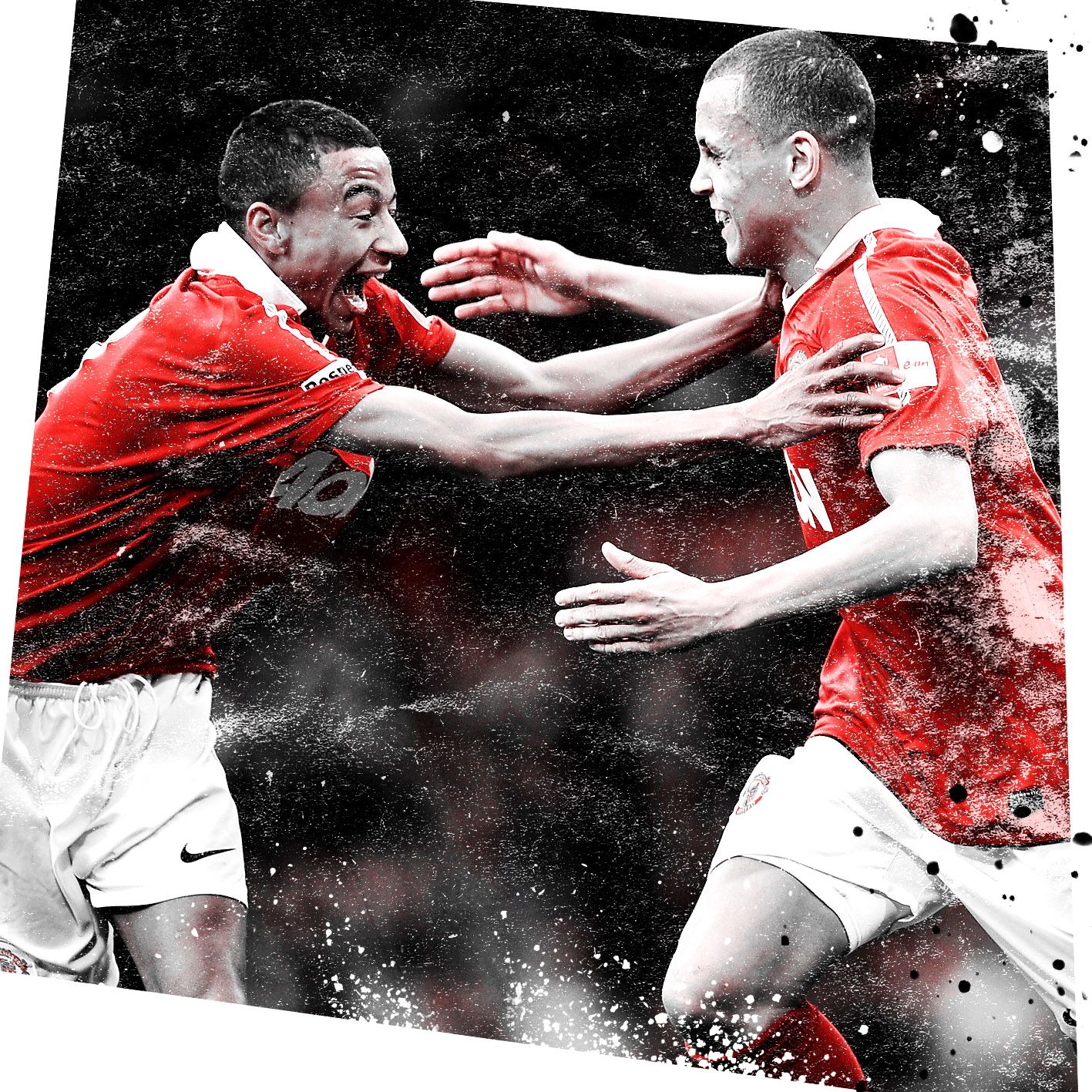
Others, like Tunnicliffe (Luton Town) and Will Keane (Wigan Athletic), are enjoying solid Football League careers. McGinty, meanwhile, has had a nomadic career that currently finds him representing Greenock Morton in the Scottish Championship.
There are some, like the team’s captain Tom Thorpe, who have fallen out of the game, with the centre-back having been without a club since 2018.
Ten years ago, though, they were regarded as heroes inside the United academy.
Johnstone: Will Keane was very, very good at scoring goals.
McGinty: Keane was brilliant. He was the one who really stood out alongside Ravel. He was the main one who won us the title.
McGuinness: If it wasn’t for Will Keane’s injury, he’d be further up the leagues, no doubt. He’s a class player.
McGinty: You had Pogba and Ravel who were really, really talented and stood out from any other player you came up against, but then you had people like Tunnicliffe who would be working really hard for the team, and Tom Thorpe at the back leading by example day in, day out, so we had a good blend.
Keane: Thorpe was great. He was so comfortable on the ball, read the game really well and was such an assured defender. He was a good leader and communicator, and he played a big role in that tournament.
McGuinness: There were a lot of really good players in there. Ravel was great, but if Tunnicliffe wasn’t there doing the hard work alongside Pogba behind him then he wouldn’t have the same opportunities.
Tunnicliffe was the star man in that Liverpool game. He wasn’t as technically talented as some of the others, but in terms of winning the ball and driving with the ball when he got really focused, he was outstanding.
I think there was quite a lot of stars in that team. If you look at Pogba he’s won the World Cup, Sam Johnstone has just been picked for England, Michael Keane and Jesse Lingard have played for England, Tunnicliffe has had a decent career. There’s a lot of decent players.
You saw people like Michael Keane, who in the Under-16s people were asking, ‘should we sign him?’ We told him to stay at school so he didn’t become full-time in his first year.
We told him, ‘don’t give school up because you’re a bright lad and we’re not sure you’ll do it. You’re a bit weak.’ He was so gangly at over six foot and couldn’t control balls properly. He didn’t have his strength yet either.
But we told him to come in two or three nights after school and we’d do individual work. It was very simple individual work, but all footwork for defending. Getting a foot in, getting clearances and spinning balls behind him, heading balls away; the basics of defending.
Because of that he got more confidence and he improved quite quickly, but so much of that was off his own back. He said he wasn’t going to school, but coming to training every day. He left school and got a tutor, and when I told the manager (Ferguson) he was refusing to go to school and he’s coming in every day, the manager said he would pay for his tutor. He ended up earning a contract and playing for England. That was a big success story.
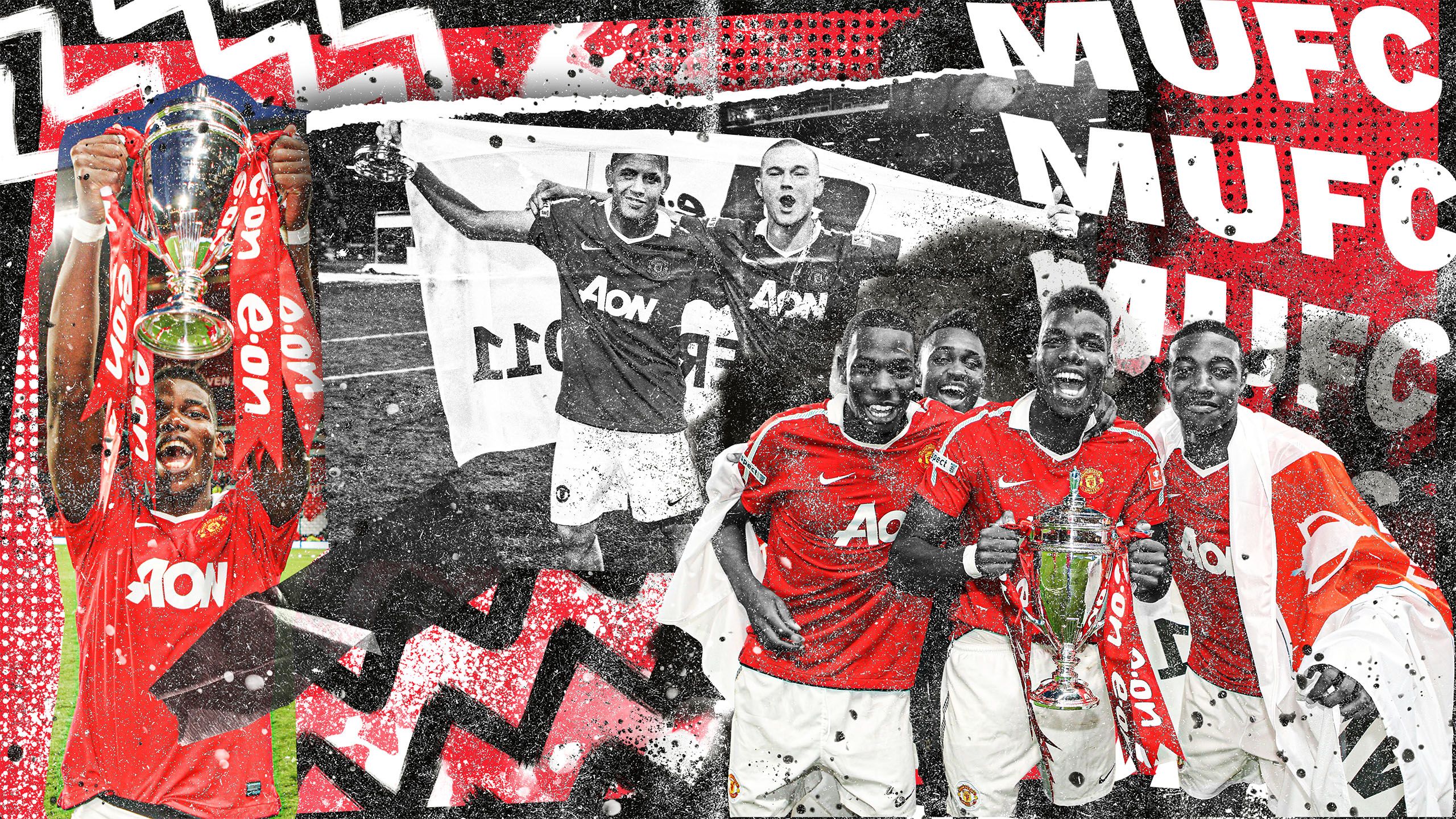
United’s opponents in the final would be Sheffield United, who boasted a certain Harry Maguire among their ranks.
The first leg was played in front of a bumper crowd at Bramall Lane, and though the visitors twice went ahead through goals from Lingard and Will Keane, they were eventually forced to settle for a 2-2 draw.
Like in the semi-final, though, the Red Devils took control in the return fixture at Old Trafford, running out 4-1 winners on the night as Morrison and Will Keane both netted twice.
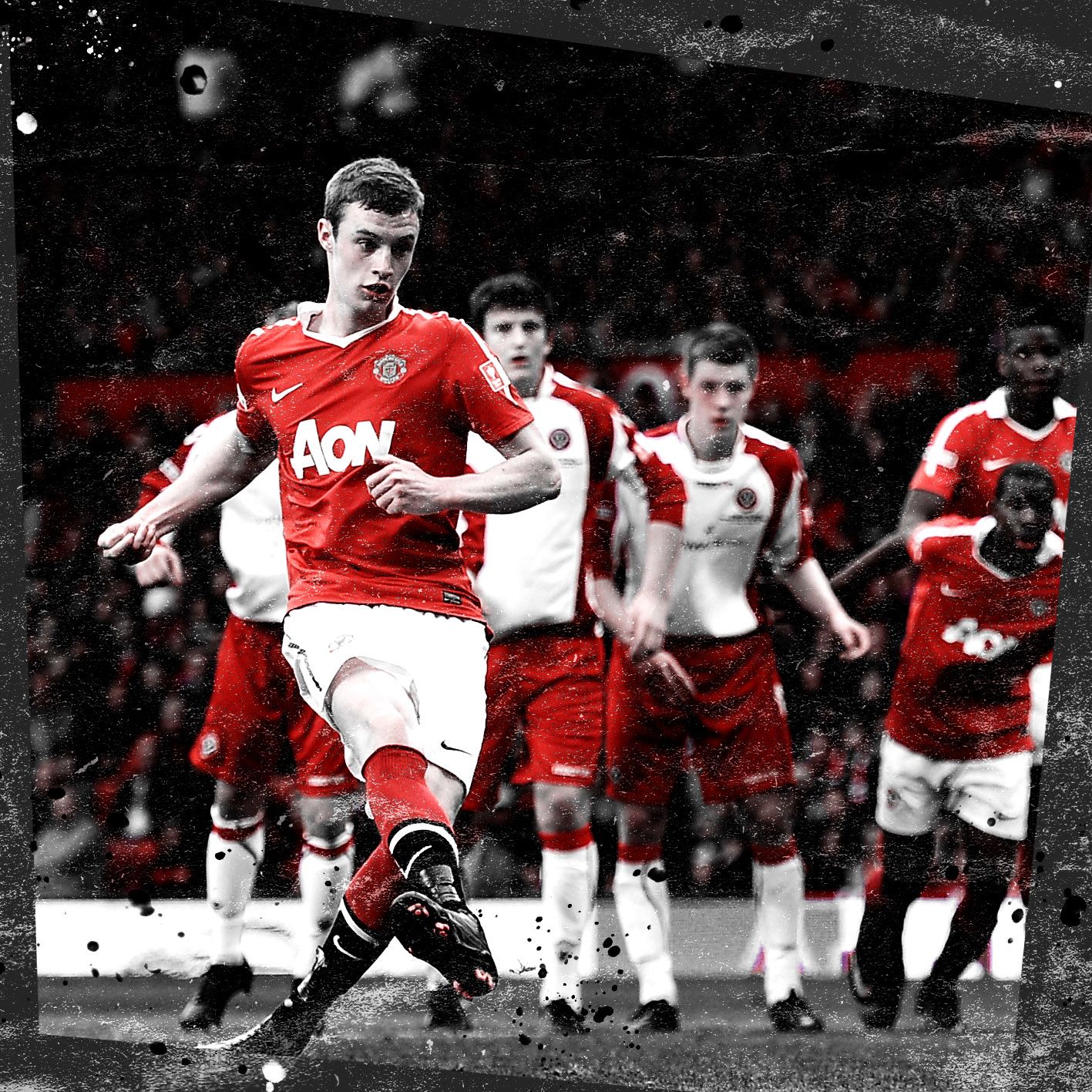
They lifted the trophy under the watchful gaze of Sir Alex Ferguson, having already been given a pep talk by the legendary Scot.
McGuinness: The manager (Ferguson) was brilliant with these things, because you’re getting to the end and you don’t know who’s going to get a contract. What he did before the final, he said, ‘get them all in my office.’
He’d have a bit of a laugh and a joke. On the wall he had one of these big curved swords that someone had presented him. He got this sword and he said something like: ‘If you don’t win, I’m going to chop your heads off!’
Sometimes he’d have jokes with them and do a quiz about the dimensions of the pitch and the size of the goals. If they didn’t know, then he’d just slaughter them.
What he did brilliantly, and what was good for me as well as the coach, is he told the players that they didn’t have to worry and that they’d all get a contract for the next season, which meant any sort of nerves then for the final were gone because they knew they had a contract. I thought that was brilliant. Great management as well, really clever.
Johnstone: I think we were all confident. We’d played Chelsea and beat them, and to play at Old Trafford that gives you that extra edge as well. We knew we were good enough, but at the end of the day football is football and anything could happen. Fortunately, we were on.
McGinty: One of the highlights of my time at United was playing that first game away to Sheffield United. It was one of the best moments, because the stadium was packed. Even though it was a draw, walking out there at a packed out Bramall Lane was fantastic.
Keane: It was amazing. I’m sure it was a record attendance at Bramall Lane that season, so that was just surreal.
McGuinness: It was the highest crowd of the season because they all wanted to see United get beat. I can remember being in the dressing room, and you don’t have to say a lot to them. They played great and scored some fantastic goals.
McGinty: The first game was pretty unbelievable. It was very nerve-wracking to start with, but as the game grew it got easier. It was the first time I had played in front of such a big crowd, and it was such a tight game.
We didn’t expect them to be as good as they were. We’d played them earlier on in the season and knew the players they had and the quality they had, but it was a bit of a surprise for them to have got so far.
Keane: As young lads to have that experience was amazing. I remember scoring at Bramall Lane, and the stand behind was where our family and friends were so I was celebrating with them. It was just such a buzz.
McGuinness: We dominated a lot of it and played a lot of good football. Then we took it back to Old Trafford.
But then you always think what will it be like? Will they freeze? What will the crowd be like? I think it was 20-odd thousand at Old Trafford, but because it’s so big it’s not the same effect as at Bramall Lane, when the fans were against us.
Keane: I vaguely remember Fergie coming in the dressing room before the second leg but I think he just wished us well and told us to give a good account of ourselves. I think just having him there and the lads knowing that he was watching was enough in itself to be able to play in front of him and show him what we can do.
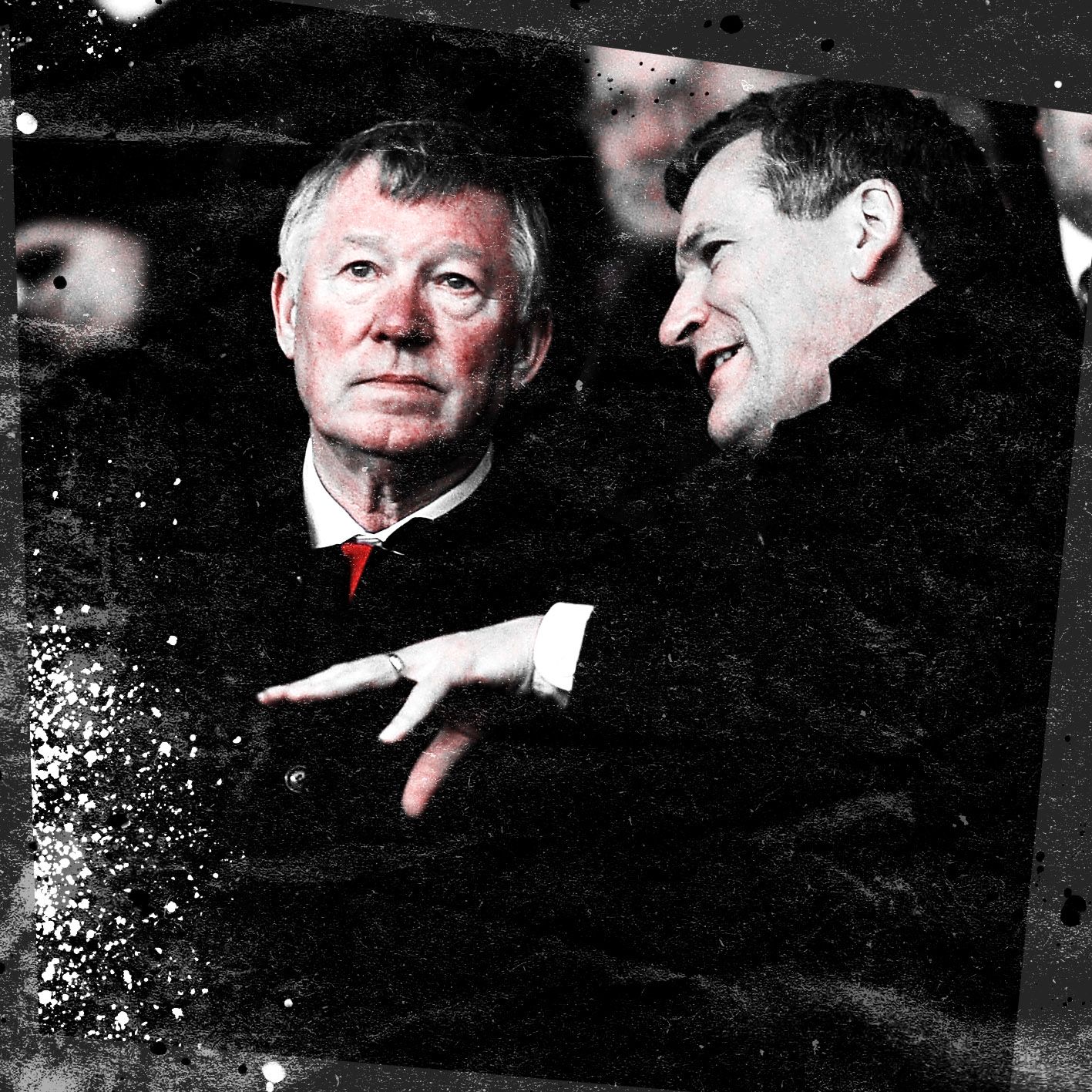
Going back to Old Trafford, we always fancied ourselves. I remember scoring a penalty in the first half. I put it to a side that I wouldn’t usually put it to, and the goalkeeper went the wrong way, which was nice! I remember taking that penalty and thinking we’re in such a great position now. I think Harry Maguire got injured in the second half too, and he was such a big presence for them, so him going off meant we knew we could kick on.
Johnstone: There were a lot of United fans there and we’d done well at Old Trafford throughout the competition, so overall everyone was confident. Thankfully, we scored a few goals and I think you can relax a bit more then.
The game opened up and we won it convincingly in the end. I just remember the celebrations afterwards. All the lads being together and having a great laugh.
Keane: It was an amazing achievement and a great feeling to have come through that and put our names in the history books in a club as big as Manchester United.
Johnstone: It’s a big thing. I wouldn’t say it’s top in terms of career achievements, but it’s a massive thing at that age. Third or second maybe. The top one has to be getting promoted to the Premier League and making your debut in the Premier League, but yeah it’s up there.
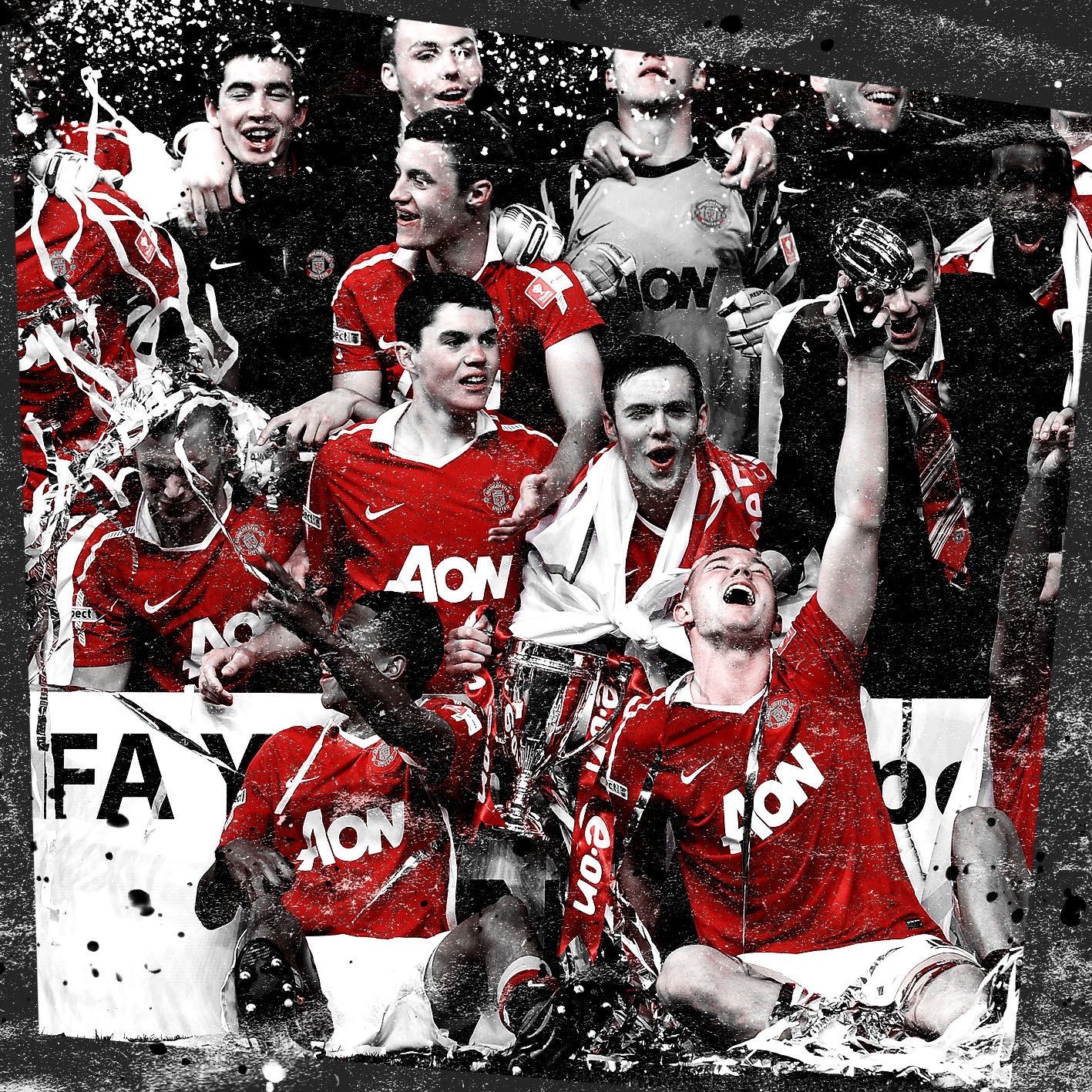
Creative by John Sheehan
